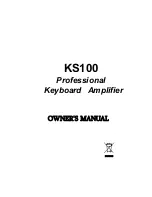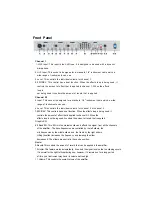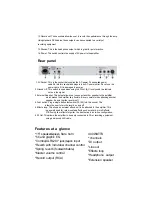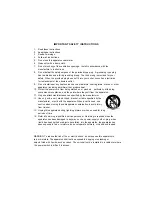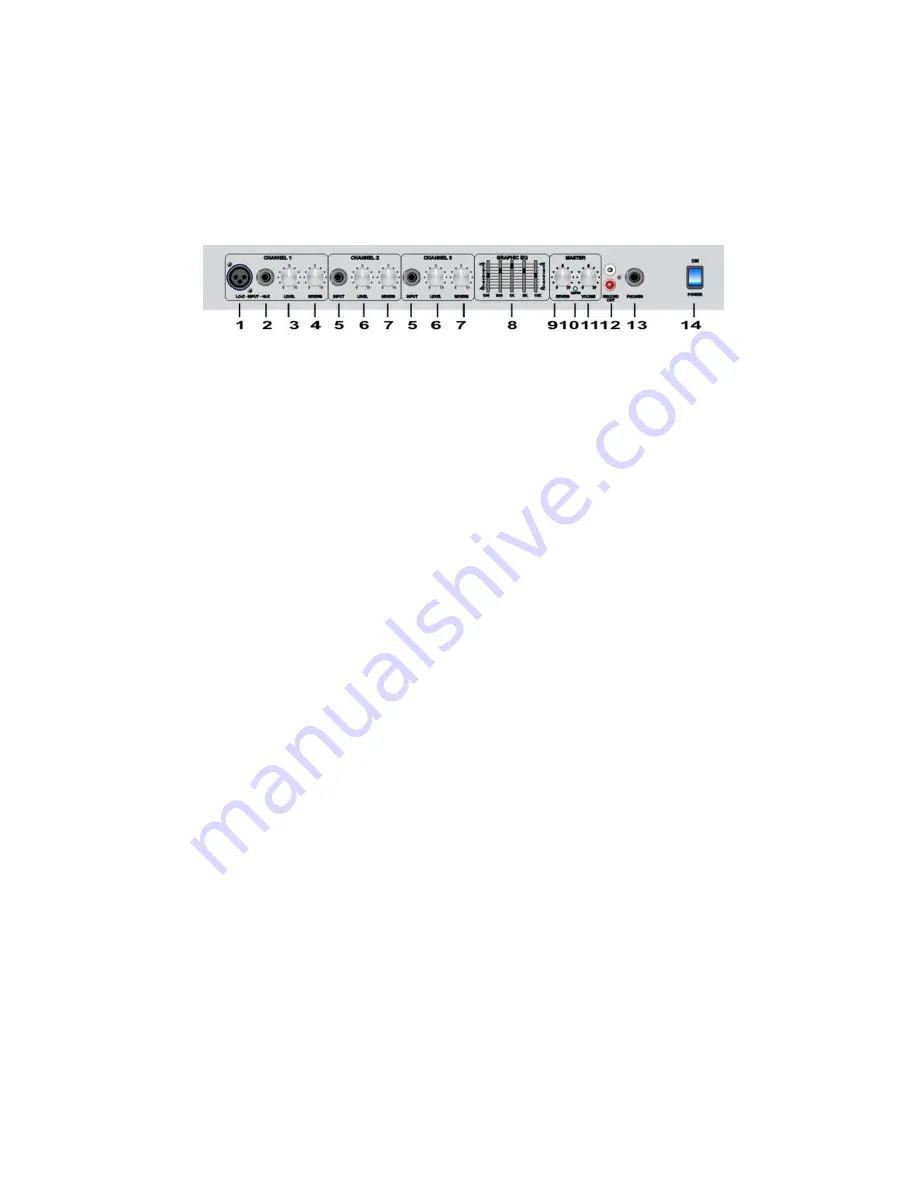
Front Panel
Channel 1
1. LO-Z Input: This input is the XLR type. It is designed to be used with a dynamic
microphone.
2.Hi-Z Input: This socket is designed for a standard 1/4" instrument cable which a
wide range of instruments can use.
3.Level: This controls the individual volume for channel 1.
4.EFX/REV: This control has a dual function. When the effects loop is being used, it
controls the amount of effect that is applied to channel 1. When the effects
loop is
not being used it controls the amount of reverb that is applied.
Channel 2/3
5.Input: This socket is designed for a standard 1/4" instrument cable which a wide
range of instruments can use.
6.Level: This controls the individual volume for channel 2 or channel 3.
7.EFX/REV: This controls has a dual function. When the effects loop is being used, it
controls the amount of effect that is applied to channel 2/3. When the
effects loop is not being used it controls the amount of reverb that is applied.
Graphic EQ
8.5 Band EQ: This EQ is in the master section and affects the signal from all the channels
of the amplifier. The bass frequencies are controlled by the left sliders, the
mid frequencies by the middle sliders and the treble by the right sliders.
Lifting the slider increases the frequency and lowering the slider
decreases it. The sliders are neutral in the centre position.
Master
9.Reverb:This controls the amount of reverb that can be applied to the amplifier.
10.Limiter:This feature works automatically. It controls the signal level so that no clipping occurs.
It is normal for the light to flicker during use, however, if it remains on for a long period
of time, your instrument may have its volume set too high.
11 .Volume: This controls the overall volume of the amplifier.

